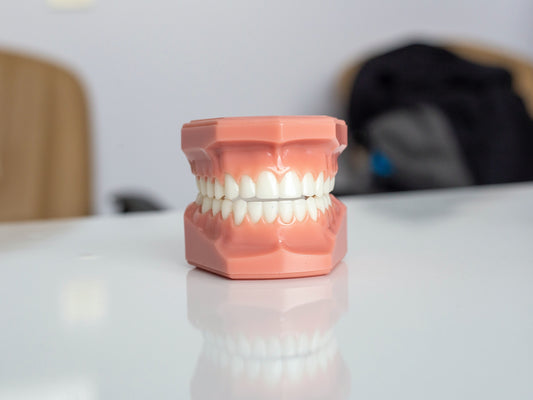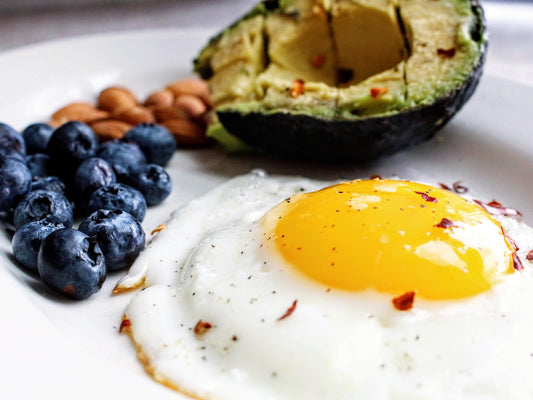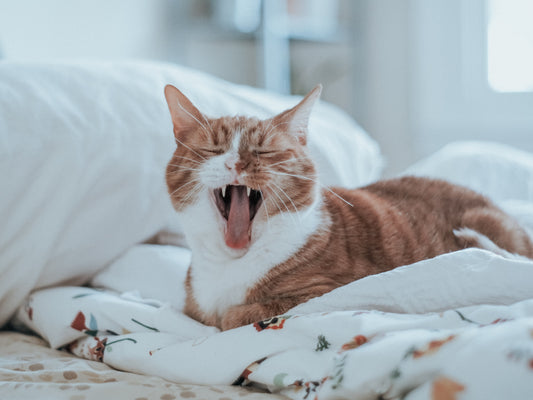You don’t need to be a science whiz to know that sleep and hydration are both good for you. Rumor has it that sleep and hydration are linked, and so as hydration-fans (hence the name) and sleep-fans (who isn’t?), we set out to see whether this link holds any weight. Here’s what we found:
The link between hydration and sleep
Will I sleep better if I'm better hydrated? Yes! If you are dehydrated, your nasal passages and mouth become dry, which may cause disrupted breathing and snoring, ultimately disrupting your sleep [1]. Some research also suggests that dehydration can contribute to nocturnal leg cramps which may keep you tossing and turning all night [1].

Ever struggle through sleepiness all day only to feel wide awake when you finally crash into bed? Dehydration may be a contributing factor! Dehydration is a cause of sleepiness, drowsiness, and fatigue. So, surely this means dehydration helps you fall asleep!? Not exactly. Dehydration can disrupt your sleep-wake patterns. Even if dehydration-induced drowsiness makes you climb into bed, additional dehydration symptoms may wake you up and keep you up at night.
Also remember that ‘hydrating’ with energy drinks, sodas, and sugary drinks won’t help your sleep either. These give you a hit of sugary energy that wears of quickly, making you feel more tired afterwards. But the post-sugar rush crash is a false tiredness—it won’t help you sleep. Limit your consumption of these drinks to protect yourself from sleepless nights [2].
Some even suggest that dehydration is a common cause of insomnia [2]. Both quality of sleep and amount of sleep have been linked to hydration, and evidence for these links is only increasing!
Hydration and Sleep: Should you hydrate before bed?
Won’t drinking lots mean I need to get up to pee in the middle of the night? Well, yes and no.
If you try to improve your sleep by drinking lots before you go to bed, you’ll set yourself up for a night time of frequent trips to the bathroom [1]. Try to stay hydrated consistently throughout the day, but restrict fluid intake before you go to bed. Instead of compensating for a day’s worth of hydration all at once and hitting your kidneys with a load of water right before bed, staying well-hydrated over the course of the day should help you avoid nighttime trips. Aim to have 3.5 pints a day, and stop drinking about an hour before bed [2].
It’s also important to think about what you are drinking. Alcohol and caffeine are dehydrating, in part because they make you pee a lot: as diuretics, alcohol and caffeine cause your kidneys to work hard to filter a lot of water from your body. If you indulge in these drinks before bed, you’ll likely end up dehydrated, and have to make a midnight trip to the bathroom [3].
Talk to your doctor if you’re having problems with frequent nighttime urination, as there may be an underlying problem. Don’t try to solve the problem by drinking less, because this might leave you dehydrated, and disguise any underlying problems.
I already sleep well, so do I need to hydrate more?
First, congratulations! You might already be well-hydrated, and are therefore helping yourself get a good night’s shut eye. Even if you don’t think your hydration routine is affecting your sleep, there are plenty of other good reasons to stay hydrated, and some links between sleep and hydration you may not even notice.

You may have heard of circadian rhythms. This is just a scientific way of describing your body’s clock, which is more important than just waking you up in the morning and making you sleepy at night. Even your kidneys have their own circadian rhythms. Your kidneys are involved in keeping the water in your body balanced. There is some evidence that suggests your kidneys intentionally cause you to need a pee before you go to bed so that your sleep isn’t interrupted by the need to get up.
But your kidneys don’t wear a watch or have an alarm clock. Instead, your kidneys, they rely on light-dark changes in your environment, and chemical changes in your body to tell them what time of day it is, and keep your circadian rhythms on track [4]. This suggests that not only does hydration help sleep, but sleep (at the right time and in the right quantities!) helps hydration, and keeping your body water levels in check. Hydration and kidney function is also linked closely to blood pressure, which is also linked to circadian rhythms.
Can sleep affect my hydration levels?
It turns out that lack of sleep might actually cause dehydration! Research released this year has started to investigate the link further, and has revealed some surprising results: namely, the link between sleep and dehydration may have a lot to do with vasopressin.
Vasopressin is a body hormone that is involved in control of both hydration status and circadian rhythms. During a long night’s sleep, vasopressin is released towards the end of the night to help make sure your hydration levels remain normal, even though you haven’t been awake to have a drink for 6 or more hours. The scientists behind the research suggest that, if you are asleep for less than 6 hours, or more than 9 hours, vasopressin release gets disrupted, resulting in dehydration.
They found that sleeping for more than 9 hours didn’t affect hydration status (compared to people that slept between 6 and 9 hours), but that sleeping less than 6 hours caused urine to be very concentrated (a sign of dehydration) and cause the patients to have inadequate hydration overall. Further research is needed to investigate why this is the case, but vasopressin is a likely candidate! [5]
How can I hydrate well?
I’m glad you asked! In summary of what we’ve looked at above, limit your consumption of energy drinks, sugary sodas, caffeine, and alcohol, and try to have 3.5 pints (about 8 glasses) of water each day. You can swap out some of the water for juices, fruit teas, or cordials if you want to mix things up.
Add some Hydrant to your water, boost your electrolytes, and get more out of your water.
Writer: Ailsa McKinlay
Editor: Elizabeth Trelstad, www.hellobeaker.com
















